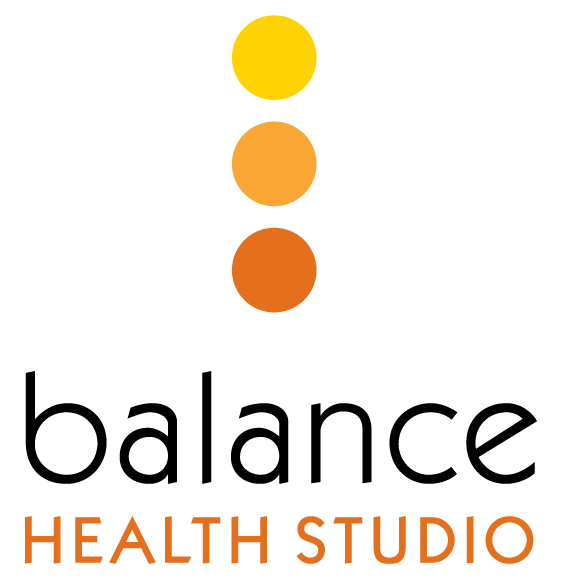Different Types Of Diets | Episode 54
In this episode of the Health Made Simple Show, we talk about different diets and their pros and cons. We are focussing on Keto, Plant-based, Vegan, and Vegetarian diets.
We cover the difference between these and which diet works for who.
My goal is to create awareness about nutritional steps. These diets have in common that they want to take out junk and processed food and integrate organic and whole foods into our diet.
Watch the live episode:
The Keto Diet
The Keto diet is a very popular one at the moment. As our body consumes and uses the nutrients that are coming in, we start to burn up that fuel and develop the so-called Ketones.
Ketones can get produced when we don’t have sugar or carbs in our bodies. Then our body can burn a type of fuel source, which is Ketones.
In that way, you kill off all the bad cells in your body, and it can improve our health a lot.
It’s a diet high in fat, medium in protein, and very low in carbohydrates.
That helps the body to burn/make Ketones.
Unfortunately, what often takes place is what I call ‘’dirty keto’’, where people, for example, eat loads of cheese or the diet becomes a meat-eating contest.
Who shouldn’t do Keto?
Keto is often combined with fasting. Fasting puts the body into a natural state of stress, which is good. The same goes for weight lifting or going to a hot sauna.
The stress will eventually make us stronger. It puts our bodies in an anabolic state.
If you have an adrenal issue like adrenal fatigue, your body typically is in a catabolic state. It is literally eating your muscle tissue. So if you are breaking down muscle tissue and you are eating it up because you are in a catabolic state, you are getting in trouble.
The Plant-based diet
On a plant-based diet, the majority of what you eat comes from plants. It comes from God’s garden. But it does not exclude animal proteins.
Nevertheless, the emphasis is on plants. That’s where people can get a little confused.
The Vegetarian and Vegan diet
There are million people out there that survive and thrive off a vegetarian and vegan diet, but they have to become very educated to really understand what they put into their bodies.
Because just not eating meat is not healthy. So one of the shortcomings could be protein. Obviously, there are proteins in plants, but you need a good strategy.
Many vegetarians eat too much carb and sugar and not enough amino acids, which are necessary to make a protein molecule.
That’s the fundamental challenge, but it is not impossible. Probably the two best and easiest things to incorporate in your diet are P-Proteins and Hemp Proteins. These have a good amino acid profile.
How much protein do we need?
There is a formula for that. So at first, you have to figure out your body fat percentage.
Then you take 100 minus your body fat percentage (e.g., 100-10%).
Now we multiply that with our weight (90% x, e.g., 180 pounds = 162).
In our example, this 162 is our lean muscle mass. This number divided in two (162 / 2 = 81) is roughly the maximum protein in grams we need per day.
The Carnivore diet
I don’t know a scenario where I used that diet for more than 30 days, but it can be very therapeutic.
Typically I use a carnivore diet with candida patients or yeast infections. The goal here is to kill it off. But it feeds on carbohydrates and sugar, and it doesn’t take much. You give it a little, and it grows, kind of like the weeds in the garden.
So I might put someone on a carnivore diet for 30 days. Even when I do that, I have my patients often include cruciferous vegetables because they are insoluble fibers, so we don’t break them down.
Which supplements should be added to these diets?
If we burn a lot of fat for fuel, especially in the Keto diet, we also tend to run out of our B-Vitamine pretty fast. I always recommend Cataplex B. Also, minerals are really important.
Important for the Vegan and Vegetarian diets are the essential fatty acids. The things you would get from grass-fed burgers, organic eggs, and so on.
If you are willing to incorporate fish oil in your diet, that would be the simplest solution for the fatty acids. I like to recommend cod liver fish oil because it’s high in Vitamine A and D. And also P-Protein or Hemp-Protein.
Questions from the Audience
What diet do you recommend for people with diabetes type 1?
Fasting, for example, is not going to be great for you. But organic foods. A combination of diets would be good, like a keto-terian-paleo diet. So maybe a keto but with a few more veggies.
What kind of fat is recommended?
We are looking for the one that nature produces, like eggs or even a grass-fed burger. Also, olive oil, coconut oil, nuts, and seeds are fantastic. These all have essential fatty acids, which are very important for lots of things like a properly functioning brain.
Should women who have a monthly cycle have meat more frequently?
The ideal answer here is that you are clean enough to be intuitive. Then you can just trust your body, and when you crave a little red meat, you go for it! That is your body’s way of saying: You need nutrients!
What about milk?
Milk once was absolutely awesome because it was raw milk, but nowadays, it goes to a process called harmonisation, which is a high-powered filtering system that shreds fats and protein and makes them undistinguishable to the human body. Then it gets pasteurized, which means cooking it high heat, which unfortunately kills everything in it. Now it pretty much turned into sugar. So milk is a no.
Do you recommend nutritional yeast?
We always want to check its source and make sure it’s organic. But if that’s so, then yes!
If you are allergic to fish, is flaxseed oil a good substitute?
Yes! But I would recommend it as capsules because the oil is very fragile, which means it oxidizes very easy and we do not want bad oils.
What about oat milk?
It’s yummy because it’s high in carbs. If it is a pure organic source, then it’s good, but rather than that, it is a sugar drink (compared to the other plant-based drinks).
How will I find out about the upcoming Cleanse? Will I receive an email if I currently receive an email about the Tuesday night zoom calls?
Yes! If you are on our email list and you get emails for The Health Made Simple Show, then you will also receive an email for the Cleanse Event!
If you are not, you can go to Facebook to The Health Made Simple Show.com and register, and you will get the email as well.
What is one action that we can take today after this episode?
Allow yourself to become more of an intuitiv eater! But to do that we need to get clean.
What’s Next?
In the next Health Made Simple Show we will talk about PAIN. As well as Pain Management and Tolerance.
We have put together a dashboard of all of Dr. Bart’s videos, based on health topics, in our Level-Up Health Membership.
This library of health content is low cost, so we can help you on your journey to becoming superhuman!
Not only is it extensive, but it will continue to expand with new videos each month. Also, you will have the opportunity to share these videos with your friends and family!
Medically reviewed and written by:
Dr. Bart Precourt
Founder of The Health Made Simple Show
Doctor of Chiropractic
Register for the Health Made Simple Show
If you are interested in registering for the Health Made Simple Show please visit http://www.healthmadesimple.com



